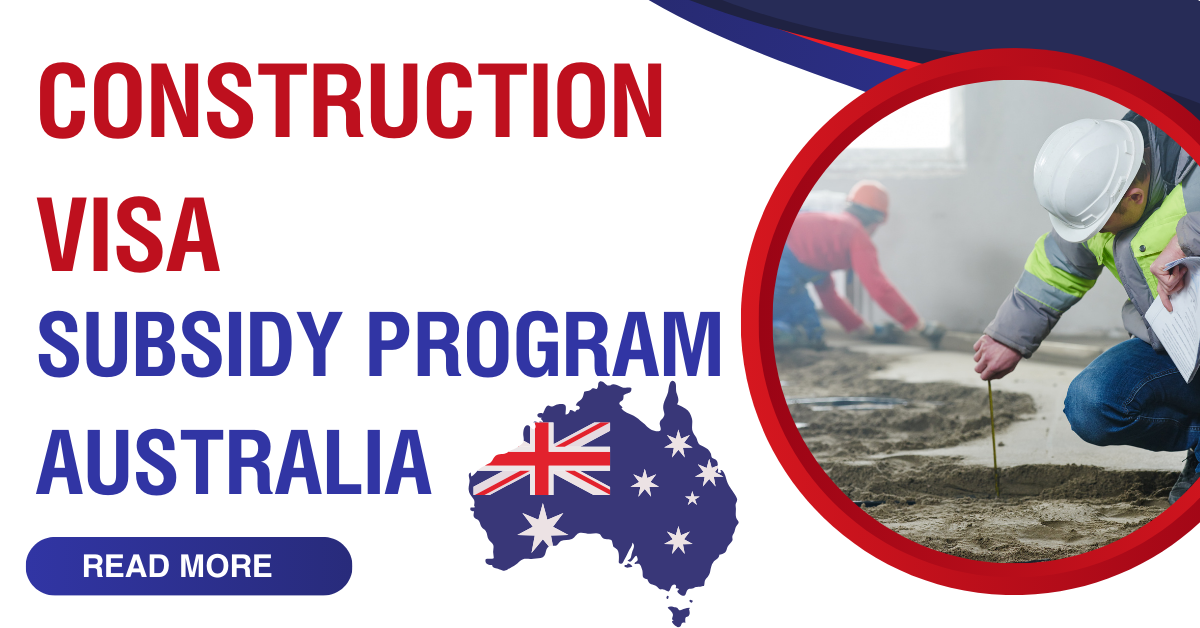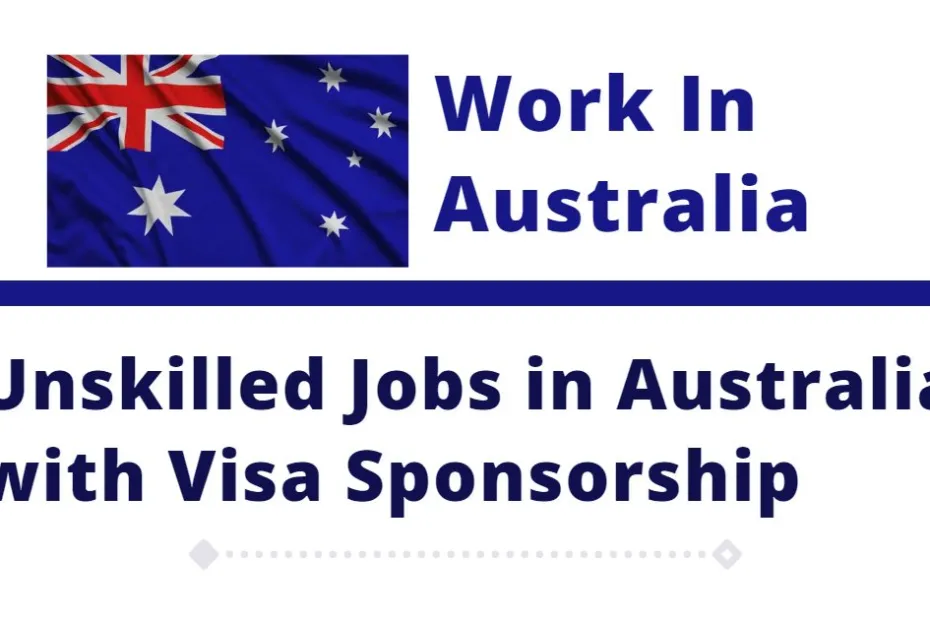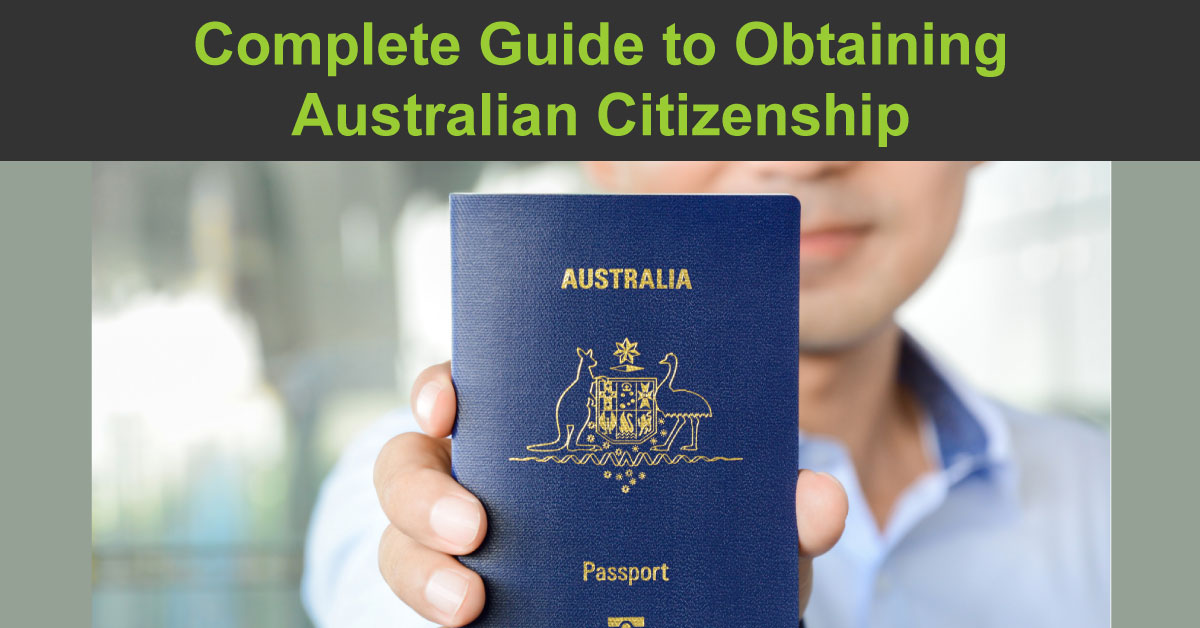Advertisements
Australia, with its robust economy, diverse job market, and high quality of life, stands as an attractive destination for foreign workers seeking employment opportunities. From skilled professionals to those looking for temporary work experiences, Australia offers a range of job opportunities across various industries. In this extensive guide, we will explore some of the top jobs in Australia for foreigners, shedding light on the key sectors, eligibility criteria, application processes, and tips for a successful career transition.
Advertisements
Skilled Occupations and Visa Options
Skilled Migration
Australia encourages skilled migration to address labor shortages in specific occupations. The Skilled Migration program offers various visa options for foreign workers with qualifications and experience in high-demand occupations.
Skilled Occupation Lists
The Australian government publishes skilled occupation lists that outline occupations in demand. These lists, including the Medium and Long-term Strategic Skills List (MLTSSL) and the Short-term Skilled Occupation List (STSOL), guide skilled migrants in choosing eligible occupations.
General Skilled Migration (GSM) Visas
The General Skilled Migration program includes visas such as the Skilled Independent visa (subclass 189), Skilled Nominated visa (subclass 190), and Skilled Regional (Provisional) visa (subclass 491). These visas are points-tested and require applicants to meet specific criteria related to age, English proficiency, skills assessment, and health.
Top Jobs in Demand
Information Technology (IT)
Software and Applications Programmers
With the rapid growth of the IT sector in Australia, skilled software and applications programmers are in high demand. Proficiency in programming languages, software development, and system analysis are essential skills.
IT Security Specialists
As cybersecurity becomes a top priority for organizations, IT security specialists play a critical role in protecting digital assets. Relevant certifications and expertise in cybersecurity protocols are highly valued.
Healthcare and Medical Professions
Registered Nurses
Australia’s aging population has led to a demand for qualified registered nurses. Overseas nurses with recognized qualifications and relevant experience can pursue opportunities in hospitals, clinics, and aged care facilities.
Medical Practitioners
General practitioners, specialists, and other medical practitioners are sought after to address gaps in healthcare services. Recognition by the Australian Medical Council (AMC) and relevant medical board registration are prerequisites.
Engineering
Civil Engineers
Infrastructure development projects across Australia create opportunities for skilled civil engineers. A recognized engineering degree and relevant experience are essential for migration under the skilled occupation list.
Mechanical Engineers
The manufacturing and construction sectors require mechanical engineers with expertise in design, analysis, and project management. A degree in mechanical engineering and relevant work experience are key eligibility criteria.
Construction and Trades
Carpenters and Joiners
Skilled carpenters and joiners are in demand in the construction industry. Qualifications, trade certifications, and experience are vital for eligibility.
Electricians
Qualified electricians with experience in residential, commercial, or industrial settings are sought after. Meeting Australian electrical standards and obtaining relevant licenses are crucial.
Education and Teaching
Secondary School Teachers
There is a continuous need for qualified secondary school teachers across various subjects. Recognition of teaching qualifications by relevant authorities is a prerequisite.
Early Childhood Educators
As the importance of early childhood education is emphasized, skilled early childhood educators are in demand. Relevant qualifications and certifications are essential.
Temporary Work Opportunities
Working Holiday Visa (Subclass 417)
The Working Holiday visa allows individuals aged 18 to 30 (35 for some countries) to work and travel in Australia for up to one year. This visa is ideal for those seeking short-term employment experiences while exploring the country.
Temporary Skill Shortage (TSS) Visa (Subclass 482)
The Temporary Skill Shortage visa is designed for employers to sponsor skilled workers for positions that cannot be filled by the local workforce. It includes short-term and medium-term streams, each with specific eligibility criteria.
Seasonal Worker Program
The Seasonal Worker Program facilitates the temporary entry of workers for seasonal agricultural work. This program is designed to address labor shortages in the agriculture sector.
Application Process for Skilled Migration
Skills Assessment
Most skilled migration visas require applicants to undergo a skills assessment conducted by relevant assessing authorities. The assessment evaluates qualifications, work experience, and skills against Australian standards.
Expression of Interest (EOI)
Applicants for skilled migration visas typically submit an Expression of Interest (EOI) through the SkillSelect system. The EOI includes details about skills, qualifications, and desired visa subclass.
Invitation to Apply
Based on the points scored in the EOI, applicants may receive an invitation to apply for a skilled migration visa. Invitations are issued periodically by the Department of Home Affairs.
Visa Application
Once invited, applicants submit a comprehensive visa application, providing supporting documents such as educational certificates, work references, and health assessments.
Temporary Work Visa Application Process
Employer Sponsorship
For the Temporary Skill Shortage (TSS) visa, employers must become approved sponsors and nominate positions to be filled by skilled foreign workers.
Skills Assessment for Temporary Work Visas
Some temporary work visas, such as the TSS visa, require a skills assessment. This process ensures that the nominated occupation aligns with Australian standards.
Visa Application
Once the employer nomination and skills assessment are approved, the skilled worker can apply for the TSS visa. The application includes details about the nominated occupation, employer, and relevant personal information.
Tips for a Successful Job Search and Application
Research and Networking
Conduct thorough research on the Australian job market, industry trends, and specific job requirements. Engage in networking events, both online and in-person, to connect with professionals in your field.
Tailor Your Resume
Customize your resume to align with Australian standards. Highlight relevant skills, experiences, and achievements. Keep the resume concise and easy to read.
Develop Strong Cover Letters
Craft compelling cover letters that express your interest in the position and demonstrate how your skills and experience make you an ideal candidate. Tailor each cover letter to the specific job application.
Leverage Online Job Platforms
Utilize popular online job platforms such as SEEK, Indeed, and LinkedIn to search for job opportunities. Create a detailed profile on professional networking platforms to showcase your skills and experiences.
Professional Development
Invest in continuous professional development to enhance your skills and stay competitive in the job market. Consider obtaining certifications and attending relevant workshops or courses.
Navigating Workplace Culture
Cultural Awareness
Familiarize yourself with Australian workplace culture, communication styles, and professional etiquette. Be open to cultural differences and seek to understand the dynamics of your workplace.
Team Collaboration
Australian workplaces often emphasize teamwork and collaboration. Demonstrate your ability to work effectively in a team, communicate clearly, and contribute positively to group dynamics.
Work-Life Balance
Understand and respect the work-life balance culture in Australia. Efficiently manage your time, meet deadlines, and prioritize tasks to maintain a healthy work-life balance.
Overcoming Challenges
Visa and Immigration Challenges
Stay informed about changes to immigration policies, visa regulations, and any updates that may impact your employment status. Seek professional advice if faced with visa-related challenges.
Cultural Adjustment
Adjusting to a new culture and workplace can be challenging. Be patient, proactive, and seek support from colleagues, friends, or community networks.
Recognition of Qualifications
Ensure that your qualifications are recognized in Australia. Some professions may require additional certifications or assessments for recognition.
Conclusion
Australia, with its thriving economy and diverse job market, holds a wealth of opportunities for foreign workers across various industries. Whether pursuing skilled migration or temporary work experiences, the key lies in thorough research, strategic planning, and a proactive approach to networking and applications. As you embark on your journey to work in Australia, embrace the challenges, celebrate the successes, and contribute your skills to the vibrant tapestry of the Australian workforce. The land Down Under awaits with open arms, ready to welcome skilled professionals seeking not just a job but a fulfilling and enriching career experience.






